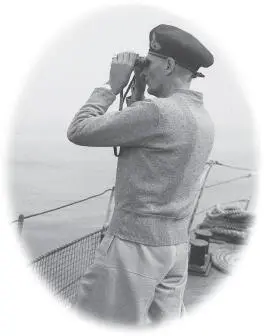Montgomery would never start a battle he was not sure of winning, so his men – who had suffered more than their ration of losing Generals – followed him cheerfully. His main military principle was that Army commanders should plan battles – not staff officers and certainly not politicians. Unsurprisingly he was not too popular with his Commander, Winston Churchill, who since Gallipoli and South Africa had longed to control troops in action.
On top of all his achievements, Churchill had a lifetime yearning to become a warrior-hero. He did not hide this improbable dream. An early biographer wrote, ‘He sees himself moving through the smoke of battle, triumphant, terrible, his brow clothed with thunder, his Legions looking to him for victory – and not looking in vain. He thinks of Napoleon; he thinks of his great ancestor the Duke of Marlborough …’
After the Gallipoli disaster in the Great War he did achieve a few months of frontline battle as a Lieutenant Colonel commanding a Rifle battalion in France. Ever afterwards he looked for another commanding role on some dramatic battlefront. At last Anzio emerged – the assault landing no one wanted. We who went there soon understood why.
Keating had flown to London with his victorious General and returned with the news that, as expected, we were about to assault Italy. The Eighth Army, the US Seventh Army and the 1st Canadian Corps would first attack Sicily, that hinge on the door to Europe, and then pursue the enemy north towards the Alps.
Invasion forces for Operation Husky were gathering at Mediterranean ports from Alexandria to Gibraltar, so I left hateful Tripoli with a convoy of new AFPU jeeps just off a ship from the States and headed flat-out across the desert back to Sousse, from where our invasion fleet would sail.
At the Libyan border we slipped off Mussolini’s tarmac road on to the sandy track through Tunisia. This had been deliberately left in poor condition by the French to slow Mussolini’s armoured columns – or that was their excuse. Through Medenine and the Mareth Line the hot desert which had so recently been a desperate battlefield and seen the last hurrah of the Afrika Korps now stood quiet and empty. It was dotted with the hulks of tanks and armoured cars, and the occasional rough wooden cross: a few sad square feet of Britain or America, Italy or Germany.
Sousse was bustling as XIII Corps got ready to fight again. We placed cameramen with the battalions which were to lead the invasion. I was to land with the famous 51st Highland Division which had battled 2,000 miles across North Africa from El Alamein. The Scots are rather useful people to have on your side if you’re expecting to get into a fight, and I was promised a noisy time.
Before the armada sailed I dashed back to Sidi Bou Saïd with secret film we had taken of the invasion preparations for dispatch to London. Coated with sand and exhausted, I arrived at our requisitioned hillside villa to find a scene of enviable tranquillity: on the elegant terrace overlooking the Bay, AFPU’s new Adjutant was giving a dinner party.
At a long table under the trees sat John Gunther, the Inside Europe author then representing the Blue radio network of America, Ted Gilling of the Exchange Telegraph news agency who was later to become my first Fleet Street Editor, and other Correspondents. In the hush of the African dusk, the whole scene looked like Hollywood.
After a bath I joined them on the patio as the sun slipped behind the mountains, drinking the red wine of Carthage and listening to cicadas in the olive groves. In a day or two I was to land on a hostile shore, somewhere. Would life ever again be as tranquil and contented and normal ? Would I be appreciating it-or Resting in Peace?
Watching the moon rise over a calm scene of good fellowship, it was hard not to be envious of this rear-echelon going about its duties far from any danger and without dread of what might happen in the coming assault landing. Dinner would be on the table tomorrow night as usual, and bed would be cool and inviting. I had chosen military excitement – but forgotten that in the Army the hurly-burly of battle always excluded comfort and well-ordered certainty. I took another glass or two of Tunisian red.
Back in Sousse next day, envy forgotten, I boarded my LST-the Landing Ship Tank. This was the first use of the British-designed American-built amphibious craft that was to be the star of every invasion across the world. A strange monster with huge jaws – a bow that opened wide and a tongue that came down slowly to make a drawbridge. Only 328 feet in length, powered by two great diesels, it could carry more than 2,000-tons of armour or supplies through rough seas and with shallow draught, ride right up a beach, vomit its load onto the shore, and go astern. Disembarking troops or armour was the most dangerous part of any landing, so was always fast. Sometimes, frantic.
Anchored side by side this great fleet of LSTs filled the harbour. Once aboard I wandered around sizing-up my fellow passengers. They were all a bit subdued, that evening. An assault landing against our toughest enemy was rather like awaiting your execution in the morning; there was not much spare time for trivial thoughts or chatter.
We were in the first wave, and the approaching experience would surely be overwhelming enough, even if we lived through it. During that soft African twilight there was little shared laughter.
THEY ASKED FOR IT – AND THEY WILL NOW GET IT…

The fleet sailed at dusk on July 9, ’43, setting off in single file, then coming up into six lines. The senior officer on each ship paraded his troops and briefed them on the coming assault landing. We were to go in at Pachino, the fulcrum of the landing beaches at the bottom right-hand corner of Sicily.
Back in the wardroom our Brigadier briefed his officers. Then, traditionally, we took a few pink gins. The intention now was to knock Italy out of the war. We were off to kill a lot of people we did not know, and who we might not dislike if we did meet; and of course, we would try to stop them killing us. ‘Could be a thoroughly sticky landing chaps,’ he said, awkwardly.
I have often wondered whether scriptwriters and novelists imitate life, or do we just read the book, see the movie – and copy them , learning how we ought to react in dramatic and unusual situations? Noël Coward showed us, with In Which We Serve; no upper lip was ever stiffer. Ealing Studios followed. Even Hollywood, in a bizarre way, looked at Gunga Din and the Bengal Lancers. We all knew about Action! but in Sicily, in real life, no one was going to shout Cut!
The armada sailed on, blacked-out and silent but for the softly swishing sea. Then the desperate night upon which so much depended changed its mind and blew up a sudden Mediterranean storm so severe (we learned later) that it convinced the enemy we could not invade next morning – but which surprisingly I do not remember at all. When you are braced for battle it does wipe away lesser worries – like being seasick, or drowning.
The storm blew itself out as abruptly as it had arrived, and I went back on deck to find we were surrounded by other shadowy craft with new and strange silhouettes which had assembled during the night. Ships had been converging from most ports in the Mediterranean, from Oran to Alex, to carry this Allied army to the enemy coast.
In the moonlight I tried to sleep on unsympathetic steel, fully dressed and sweating, lifebelt handy. Then around 4am the troops came cursing and coughing up out of the fug below decks into the grey dawn, buckling equipment and queuing for the rum ration.
Читать дальше













